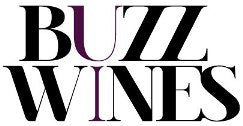This late harvest is always light-footed, slim with a cool aroma. Delicate notes of white flowers, fine fresh stone fruit and a juicy green apple are evident in this classic Moselle late harvest.
The grapes for this wine come from the cooler, higher elevations of the Brauneberger Juffer, which have a fine acidity year after year. Gently pressed, spontaneously fermented and with a long fine yeast storage, the fruity Juffer Spätlese gives a maximum of pleasure for many years.
7.5 % alc/vol, 8.0 g/L TA, 73.5 g/L RS.
'Fascinating nose of vanilla bean, licorice, white peach and melon. Giant wet stone freshness that pushes the unfermented grape sweetness, inherent to this style, way into the background. Firm structure at the long, cool and subtly earthy finish. Drink or hold.' 94 points, Stuart Pigott, JS Wine Ratings, August 2023.
'The 2022er Juffer Riesling Spätlese, as it is referred to on the consumer label, is a sweet wine with a gorgeous nose made of vineyard peach, whipped cream, mango, bergamot, slate, and smoke. The wine develops a subtly opulent and delicately creamy feel of vineyard peach, apricot, cream, and finely spicy elements of a drinking Auslese on the palate but remains firmly Spätlese styled in the long and juicy finish. 2032-2052.' 92 points, Jean Fisch and David Rayer, Mosel Fine Wines, Issue 67, September 2023.
'The 2022 Fritz Haag collection will put an immense smile on lovers of the unique style of the Estate made of subtlety, elegance, finesse, and some freshness. All wines are superbly clear and packed with flavors (especially yellow fruits). The GGs are among the finest of the Estate’s history and in particular, the lesser-known Kätzchen proved almost beyond belief. In the fruity-styled and sweet portfolio, the Juffer-Sonnenuhr seems to have the edge over the Juffer in 2022, but not by much as shown by the otherworldly Juffer Auslese GK. The Juffer-Sonnenuhr Spätlese and Auslese have this stunning succulence and delicacy which we love so much at this Estate. Even the Estate wines are stunning. What a great success!
Finally, the 2021 BAs and TBAs are already now part of the Mosel legend and among the finest we have ever tasted.' Jean Fisch and David Rayer, Mosel Fine Wines, Issue 67, September 2023.

The historic Fritz Haag wine estate is located in the heart of the central Mosel River Valley. The earliest documentation of the estate dates back to 1605. At that time, the village in which it is situated was known as ‘Dusemond.’ In 1925, this village was renamed ‘Brauneberg’ (‘brown mountain,’ a reference to the color of the slate soil in this area of the Mosel) in an endeavour to further promote the reputation of its world-renowned vineyards ‘Brauneberger Juffer Sonnenuhr’ and ‘Brauneberg Juffer.’
The name of the famous vineyards ‘Juffer,’ which translates as ‘old maid’ or ‘virgin’ in the local dialect, goes back to 1790. The proprietor of these exceptional vineyard slopes at the time, the aristocratic Kurpfälzische Kammerherr Wunderlich, had three daughters who all remained unmarried and lived the lives of spinsters. As a consequence, when they took over the vineyard management from their father, the name ‘Brauneberger Juffer’ was born and the wines soon became well-known and famed in the wine world. The vineyards are recognised as true pearls of the Mosel region and were treasured even by Napoleon.
For many years, the Fritz Haag wine estate was successfully headed by the endlessly energetic Wilhelm Haag, and achieved, under his guidance a world-renowned reputation. Wilhelm Haag was the first to win the acclaim ‘winemaker of the year,’ a highly coveted accolade introduced in 1994 by the famous Gault Millau Wineguide. Since 2005, son Oliver has taken over the
reins and has joined his successful father in leading the estate into the future.
The Fritz Haag estate owns 18.5ha of vineyards which are all exclusively planted with Riesling. The excellent micro-climate and the deep slate soils of the Brauneberger Juffer slope form the basis for some of the most intensely flavored and elegantly-structured Riesling wines of the Mosel region. Oliver Haag, the current proprietor, rigorously selects the clones most suited to the microclimate of his vineyards in order to achieve the maximum potential in the grapes. As a winemaker, Oliver’s skills are matched by few. His wines, which display a pleasing subtle colour, show a well-defined palate that reaches from honeysuckle to pears and apples. They are laced with citrus and underlying mineral tones, reflecting the brown slate vineyards of Brauneberg.
The Fritz Haag estate produces wines that cover the full style spectrum, starting from a dry style and ranging to lusciously sweet. A mineral ‘slate’ character and a pronounced and fruity acidity give the wines their elegant sophistication and their great aging potential. The estate’s graceful, well-refined Rieslings are rated as impressive examples of the finest wines the Mosel region has to offer.


